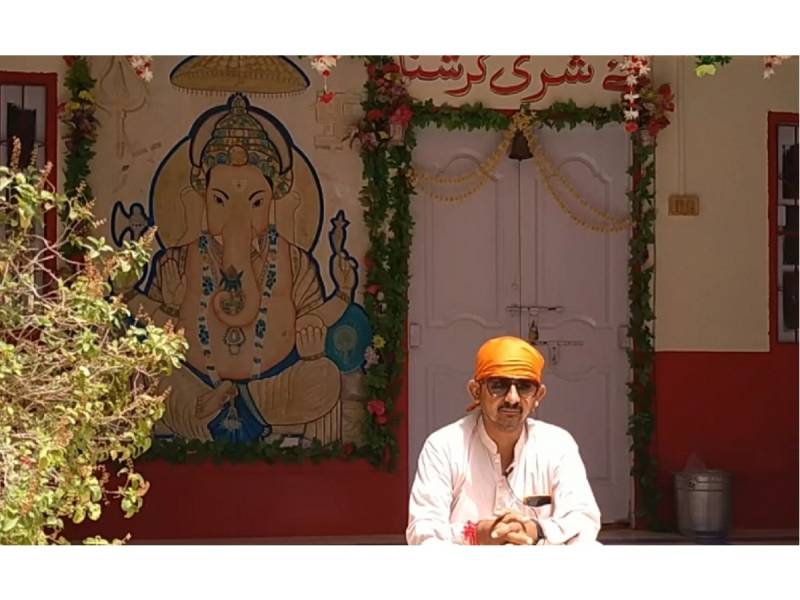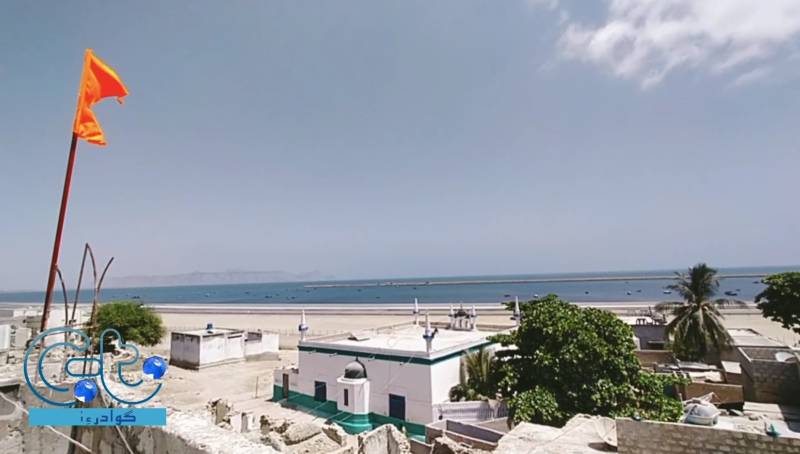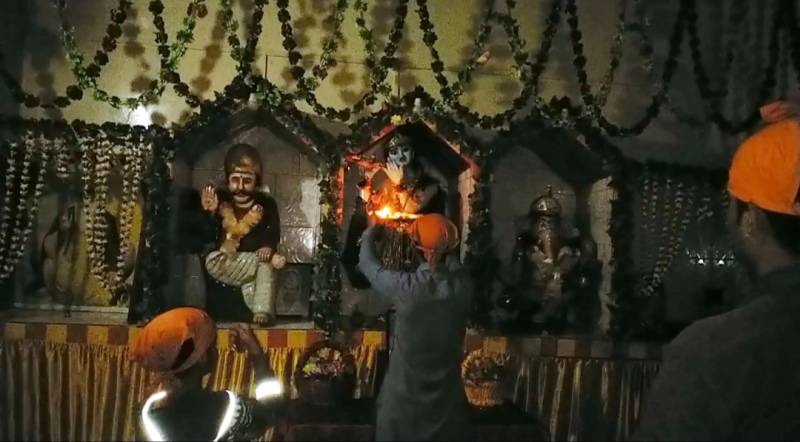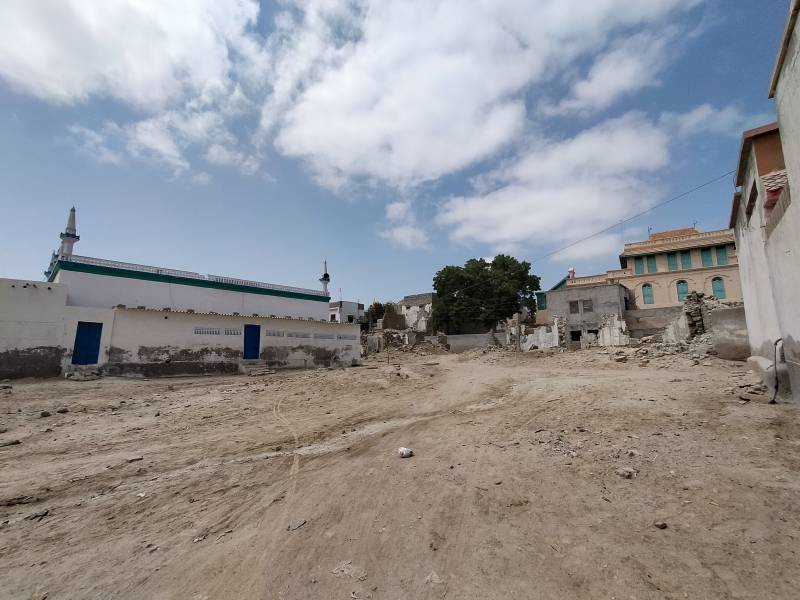
In the heart of Gwadar, Balochistan, lies a testament to the harmonious coexistence of different faiths, a place where three distinct places of worship stand shoulder to shoulder, exemplifying the rich tapestry of religious diversity. Within a close radius, a Sunni Muslim mosque, a Hindu temple and an Ismaili Muslim Jamatkhana coexist in perfect harmony, portraying the spirit of religious tolerance and acceptance that thrives in Baloch society.
Dr Shah Muhammad Marri, a distinguished Baloch intellectual, eloquently expresses the ethos of the region: "Baloch as a nation respect all religions because these were once followed by our forefathers." His words resonate deeply with the people of Gwadar, where religious acceptance is ingrained in the local culture.

Mr Chandar Kumar, a prominent resident of Gwadar and the President of the local Hindu Panchayat, is a passionate advocate for this unique religious harmony. He speaks with pride about the Krishna Mandir, nestled in the old and bustling neighbourhood of Shahi Bazar. According to him, the existence of this temple is a testament to the love and tradition of Baloch society, where acceptance of diverse faiths is a way of life. It is a place where during the Maghrib prayer time, all three faith traditions coalesce in simultaneous acts of devotion. "In the mosque, the Maghrib prayer is offered, in the temple, we conduct our prathnas (prayers), and at the Jamatkhana, the Ismaili community gathers for prayers," Chandar Kumar explains.
The Krishna Mandir itself is a historical treasure, dating back over two centuries. Though it had fallen into disrepair over the years, with the support and contributions of the local community, it was lovingly restored. Chandar Kumar acknowledges the unwavering support of the local Ulema (Islamic scholars), who assured the Hindu community that they would always be protected and never made to feel like a minority.

Naresh Kumar, a young member of the Hindu community in Gwadar, visits the temple daily to offer prayers. He proudly shares that he never feels like a minority; his friends, neighbours, and classmates treat him with respect and understanding. He extends invitations to his Muslim friends during religious festivals, fostering a spirit of curiosity and mutual respect. According to him, they are all Baloch, regardless of their religious beliefs.
Vivak Kumar, another young worshipper, is a student who visits the temple regularly. He describes his daily routine, which includes visiting the temple after tuition classes. He explains that before commencing any task, they invoke the name of "Ganesh ji" and initiate their prayers with a Ganesh ji Pooja. He underscores the deep respect that Baloch society has for their community, making them feel entirely integrated.
Sunder Kumar, a young man, takes visitors on a tour of the Krishna Mandir. He reveals that their prayers always begin with a call to Ganesh-ji. Sunder, like others in his community, visits the temple daily, offering prayers for the protection and well-being of his family.

According to Sunder, his grandfather's accounts suggest that the temple is more than two centuries old. There are approximately two hundred Hindu households in Gwadar, and he emphasises that Gwadar is their home, where they have never felt like strangers. He underscores that Gwadar stands as an exemplary model of religious harmony.
Naresh Kumar addresses some common misconceptions about their beliefs, clarifying that their religion strictly forbids gambling and drinking. He emphasises that their faith forbids harm to even the tiniest creatures.
Lucky Chaman is deeply involved in local politics and has strong affiliations with Jamiat Ulema-e-Islam. His father served as a district council member. He believes that religious and nationalist parties have consistently supported their community. He considers the religious harmony in Gwadar to be a shining example of Baloch tradition—a legacy that will endure, regardless of the passing of time.
Shahi Bazar Gwadar, with its coexisting places of worship, stands as a shining beacon of religious harmony, demonstrating that in Balochistan, diversity is celebrated, and unity is cherished. The lessons of acceptance and brotherhood continue to inspire not only the local community but also visitors from afar.

